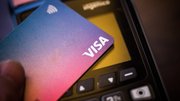Article
ATMs, NFC and iBeacon: The new dilemma
'To NFC or not to NFC?' Apple snubs the technology and backs iBeacon, making the choice dicier than ever for ATM operators.

September 20, 2013
Amid this week's release of the new iPhone 5S and iOS 7, a great deal of Internet talk has focused on a previously glossed-over feature within the new operating system that some are hailing as an NFC-killer.
The iBeacon feature uses Bluetooth Low Energy to enable precise micro-location. It is said to be particularly useful in places such as shopping malls, where reliable GPS location data may be lacking.
Apple mentioned iBeacon in passing during its WWDC presentation earlier this year, but a story this week on GigaOm, predicting that it could supplant NFC in the mobile payments ecosystem, unleashed a torrent of follow-up commentary. Some observers agree, some scoff.
Range of opinion
Count Fast Company in the former camp; the business publication laid out how iBeacon might help create more sophisticated interactions between the payee and the merchant's computer systems. For example, when a person with an iPhone arrives in a store that uses iBeacon, the iBeacon will know that person is within a short range of the device.
![]()
That might trigger an alert promoting special offers or sharing a coupon based on prior customer purchases. It's also easy to imagine, the magazine said, that wireless or "touchless" payment systems would speed up transactions because the beacons authenticate users by their phones' unique codes and confirm that they're in the store. The payment could occur without swiping a card or bumping a phone against a sensor.
Einar Rosenberg, chief technology officer for Narian Technologies, is more skeptical. He has spent time testing BLE technology on Android and iOS devices and sees NFC and BLE as complementary, not mutually exclusive.
"Let's say you're in a mall," he said. "GPS tells you you're in a mall. Wi-Fi positioning tells you what store you're at. Bluetooth can tell you you're looking at the jeans section. NFC tells you about the specific pair of jeans."
Shortcomings
Rosenberg sees BLE as suitable for things like gaming or quickly tracking items in short-term situations such as moving a group of barrels from point A to point B. But he has a number of concerns. "While (BLE) is low power, it still requires power," he said. "And its accuracy isn't very good, so you might be told you're in the section next to the one where you actually are. I've had that happen during multiple tests."
Also, he said, Bluetooth is part of the junk spectrum, sharing the same frequency as many cordless phones and microwaves and working on nearly the same frequency as Wi-Fi. "While the technology is nifty and has potential, it's still something that can't truly be implemented seamless into the real world"
And BLE is expensive, he said. "For NFC, you're literally paying pennies. BLE devices are around $30 each."
Not either-or
Steve Gurley, president of Pyrim Technologies, a mobile business and new market development company, is also dubious about the NFC-vs.-BLE argument. "I absolutely do not see BLE as a replacement for NFC," he said. "I see them as complementary and not competitive. BLE is primarily a location positioning technology that can also deliver content within a confined geographic area. NFC is a physical object engagement technology. Both have distinct use-cases that do not conflict. I do think BLE has a future. Like NFC, tag management and cost will be a big issue connected with its deployment."
Gurley noted that the overarching discussion of NFC and BLE oversimplifies how NFC works. The technology has three modes: peer-to-peer, secure card immolation and read/write. He can see BLE replacing P2P, but not the other facets.
"You have to look at it; will it eliminate 1, 2 or 3?" he said. "I don't see anyone talking about NFC in that vein. But you cannot effectively evaluate NFC from a global perspective. You have to look at it by mode of application."
No last word
Rosenberg said he's not arguing NFC vs. BLE. "I expect both to be in phones together, such as what we see in the Galaxy S3/4. But NFC will do more than BLE and will be more widespread because of the existing infrastructure, solid standards and native abilities on the phone."
But the world has big expectations of Apple, which has thus far frustrated NFC acolytes by opting not to include the technology in iPhones, including the 5S. Most observers believe Apple must and will make a mobile payments play, and many see the iBeacon as a gateway.
"If Apple plays its iBeacon cards right," Fast Company concluded, "it could even turn out to be the best-kept secret superpower of iOS 7 and the iPhone 5S. All sorts of payments systems and LBS facilities could be created — the most interesting of which we probably can't imagine right now."
Read more about ATM innovation.
 ChatGPT
ChatGPT Grok
Grok Perplexity
Perplexity Claude
Claude












